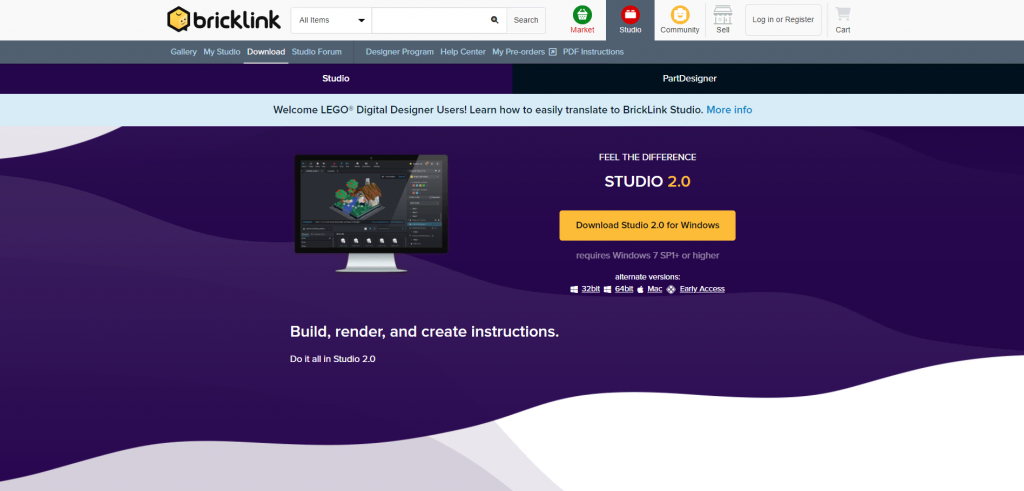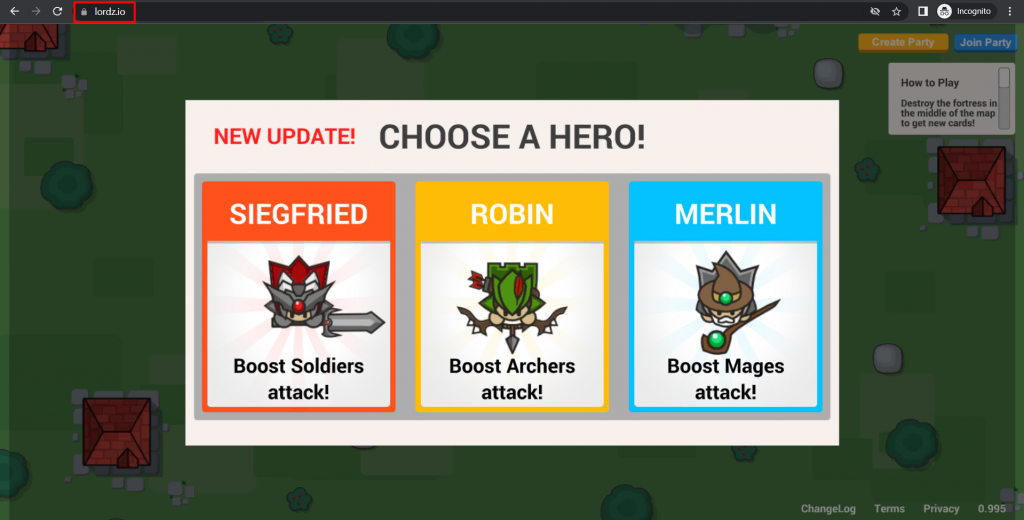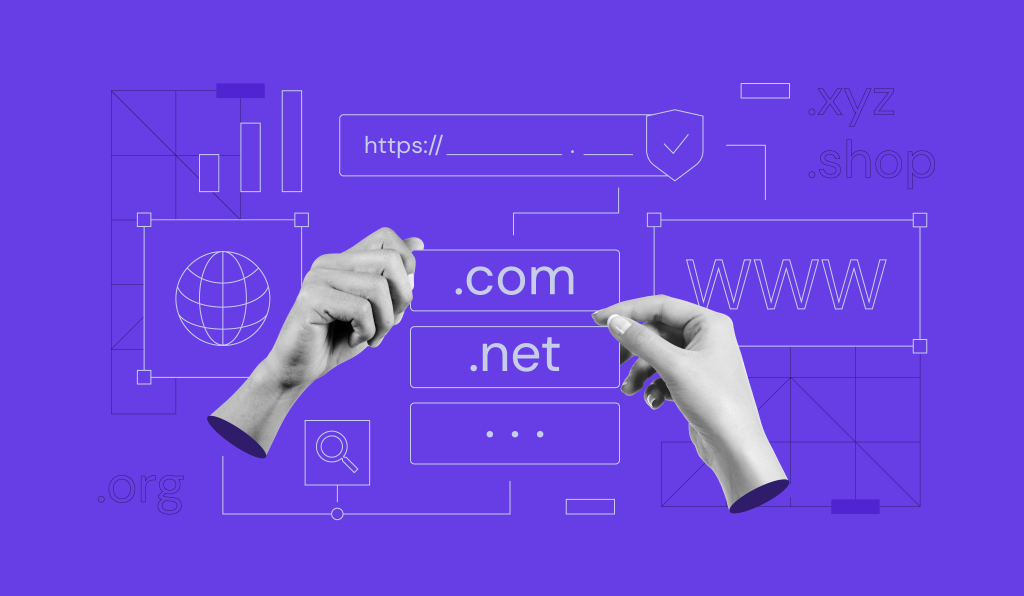What Does .io Mean: When to Use It, Pros and Cons, and More
Finding the right name and top-level domain (TLD) is essential when creating a website. However, the process may seem daunting since there are over 1,500 TLDs to choose from, like .com and .io.

What Does .io Mean?
.io is a country-code top-level domain name (ccTLD) for the Chagos Archipelago, assigned to the British Indian Ocean Territory (BIOT). However, it has become a generic domain and is popular in the tech world since IO or I/O means input/output in computer science.
Each of them serves a specific purpose. For example, .com domain names are suitable for commercial websites, and .io is popular among tech corporations.
This article will specifically discuss the .io domain extension, from the definition and brief history to its functions. We will also list the pros and cons of .io to help you decide whether to buy this domain extension for your website.
The Internet Assigned Numbers Authority (IANA), an organization handling the Domain Name System (DNS) root zone, delegated the .io TLD to the Internet Computer Bureau (ICB). Later, Levis Strauss registered the domain name levi.io for a purpose other than a geographical identity.
Now, .io is operated by Identity Digital, an American registry that also manages .mobi and .info domains.
When Should You Use the .io Domain Extension?
Compared to other popular top-level domains, fewer sites use .io, but this domain extension is increasingly popular in high-traffic tech sites.
These are just a few examples of popular .io websites:
- Opensea.io – the largest non-fungible token (NFT) marketplace.
- Etherscan.io – this website is for searching Ethereum blockchain transactions.
- Greenhouse.io – an applicant tracking system and recruiting software.
Although .io is popular in the tech industry, this extension is available for any business. Usually, web visitors see this domain as more of a generic one than country-specific, the common examples of which are .co.uk or .fr.
As a result, Google treats .io as one of the generic country-code TLDs – ccTLDs that are acknowledged as generic top-level domains. Another example of a generic ccTLD is .ai domain. Although it is an official extension of Anguilla, it is also popular among tech startups in the artificial intelligence industry.
Note that .io is different from the .ly TLD, which is still administered as the country-code top-level domain for Libya, although many businesses outside the country like Bit.ly and Ow.ly use this extension.
Therefore, using .io is one of the domain hacks for global companies to own memorable brand names. They do not have to be located in the BIOT to register .io domains or worry about search rankings as it is not country-targeted.
For example, Marco Rubio successfully employed rub.io for his US presidential campaign. Bricklink, a platform for selling and buying LEGO parts, uses stud.io to redirect it to its studio software. In this case, they used. io as a short and memorable alternative to .studio domains.

Meanwhile, Italian and Esperanto speakers use .io to make a geographically relevant and keyword-friendly domain. Io in Italian means I and acts as a suffix to terminate official names of lands and countries.
For instance, esperant.io redirects to Libera Folio’s website, an online bulletin written in Esperanto.

What Does .io Mean for Startups?
Tech and SaaS startups use .io domain names due to their reference to the input/output terminology, providing a single word relevant to their audience and startup communities. Also, .com may not be available for their second-level domains, making .io a perfect domain alternative.
What Does .io Mean for Tech Companies?
Similar to tech startups, other companies in the tech scene use .io to associate themselves with the input/output reference. These include open-source organizations and the financial services sector like cryptocurrency companies.
Many video gaming projects also use .io as a matching domain since the term io in the gaming industry refers to browser-based games with multiplayer components and minimalist graphics.

Pros and Cons of .io Domain
Now that you know the basic concept of the .io domain, let’s examine the advantages and disadvantages of using this extension in your web address.
Pros of .io Domains
Here are some excellent reasons why people use the .io domain:
- Tech affiliation – .io is recognizable in the tech space and startup communities. This makes the domain effective for external communications, helping people recognize the industry quickly.
- Greater availability – compared to other domains, like .com and .net, the .io address only accounts for 0.6% of all domains worldwide. As a result, this TLD is more likely to be available than other options when you buy a domain name for your existing brand.
- Wide search engine recognition – Google doesn’t relate .io to British Indian Ocean Territory, meaning it does not specifically target that geographical area when showing .io sites in search results.
- A creative name – use .io to shorten your URLs and create more memorable domains.
Cons of .io Domains
Besides offering several advantages, the .io domain extension also brings several downsides, including:
- A higher price – domain name’s cost depends on its extension, availability, and popularity, and .io is more expensive than .online, .tech, or .com domains. One of the reasons is that it has become trendy and on-demand in the tech industry and startups.

- Lower trust and memorability scores – compared to popular domains like .com and .org, .io is less trustworthy and memorable. Its trust rating sits at only around 3.0, and it is one of the least memorable domain name extensions, with a score of 28%. It may be because .io is relatively new and has not gained the same credibility and reputation as .com.
- A controversial history – there are geopolitical issues over the Chagos Archipelago between the UK, Mauritius, and the US. This dispute might immediately deactivate the BIOT, the IO ISO-3166 country code, and the .io domain, like the UK businesses that cannot register or renew their .eu domain names after Brexit.
Pro Tip
If you’re going with the .io extension, make sure to buy the domain from a reputable domain provider such as Hostinger. All domain names come with WHOIS info privacy protection and 24/7 expert support. Alternatively, purchase our web hosting plan and get a free domain name.
Conclusion
The .io domain used to be one of the country-code TLDs only, specifically for Indian Ocean sites. However, it is no longer country-specific as Google acknowledges it as a generic top-level domain, serving a much broader audience.
Many people see .io as the right domain name extension for their tech businesses, referring to the input/output in the computing process. Meanwhile, others buy it to make a more creative and relevant domain utilizing a different TLD.
Despite its higher cost, lower trust rating, and complex history, .io domains provide greater availability and a shorter name. It also helps people associate .io sites with tech startups or companies, even without seeing the content
We hope this article will help you decide whether to use the .io domain for your website. Make sure you register the domain while it is still available via a reputable registrar or a hosting provider together with a hosting plan.
Learn More About Domain Names
How to Buy a Domain Name – Full Guide and Tips
What Are Subdomains? A Comprehensive Guide For Beginners
FQDN (Fully Qualified Domain Name): What It Is, Examples, and More
What Is a Domain Name? A Beginner-Friendly Guide
URI vs URL: Differences and When to Use Them
Domain vs Hosting: Definition and Differences
What Does .io Mean FAQs
What Are the Requirements for Registering a .io Domain?
There are no specific requirements for registering a .io domain. It is open for registration to individuals, businesses, organizations, and anyone interested in establishing an online presence. The registration process typically involves choosing an available domain name and completing the registration through a domain registrar or hosting provider.
How Much Does It Cost to Register a .io Domain?
The cost of registering a .io domain can vary depending on the domain registrar and any additional services included. On average, the registration fee for a .io domain can go up to $60 per year. With Hostinger, you can get a .io domain for $39.99/year.
Can I Transfer My .io Domain to Another Registrar?
Yes, you can transfer your .io domain to another registrar. The process typically involves unlocking the domain, obtaining an authorization code, initiating the transfer with the new registrar, and confirming the transfer request. Both the current and new registrar may have specific procedures and fees for domain transfers.


